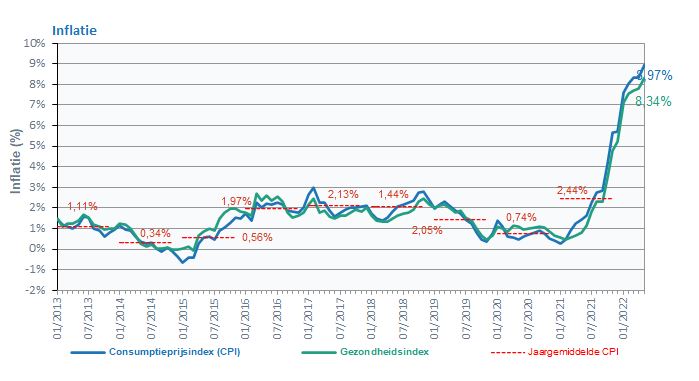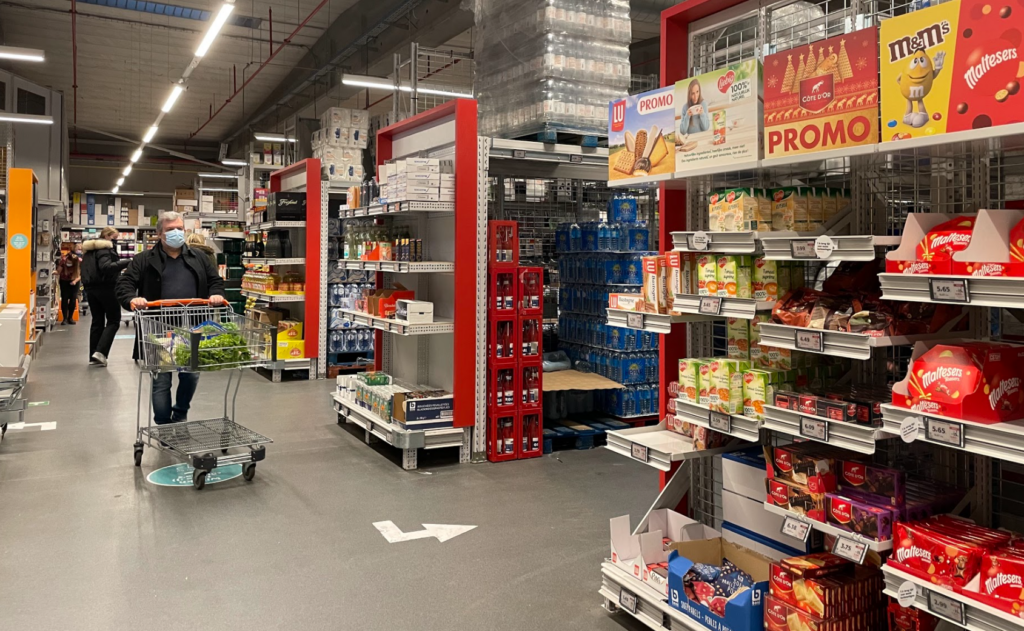In May, the inflation rate in Belgium rose to 8.97%, the highest level in 40 years, largely as a result of the high energy crisis, as well as food inflation.
The inflation rate increased from 8.31% to 8.97% in May this year, nearing the highest level ever recorded in August 1982, when inflation stood at 9.02%, according to a recent report from the National Bank of Belgium (NBB).
"The high inflation this month, as in recent months, is largely due to high energy prices. Energy inflation currently stands at 56.80% and contributes 4.80 percentage points to total inflation," a statement from the NBB read.
Electricity is now 54.44% more expensive than a year ago, while natural gas is 130.60% more expensive than in May last year (but on average 2.0% cheaper than April). Motor fuels (diesel and petrol) cost 31.95% more than a year ago.

Rise in inflation. Credit: NBB
"In addition, food inflation (including alcoholic beverages) has also risen sharply in recent months, standing at 6.32% this month, up from 5.09% last month." In comparison with last year, the inflation rate for food has risen very sharply, as in November 2021, it stood at just 0.47%.
Inflation for bread (11.8%, up from 1.7% in November), cereals (11.9%, up from 0.6% in November) and edible and frying oils (26.5%, up from 13.1%) in particular has risen sharply in recent months, mainly as a result of the war in Ukraine and the effect this has had on the global food supply.
Related News
- More middle-class people flock to food banks in Brussels
- Belgium's famous fries could get a lot more expensive
- Organic products less popular in Belgium due to high inflation
The main prices increases could be felt when paying for motor fuels, electricity, private rent, heating oil, milk, cheese and eggs, vehicle purchases, alcoholic beverages, foreign travel and city trips and fish and seafood.
"Natural gas and clothing, on the other hand, had a downward effect on the index," the NBB statement read.

